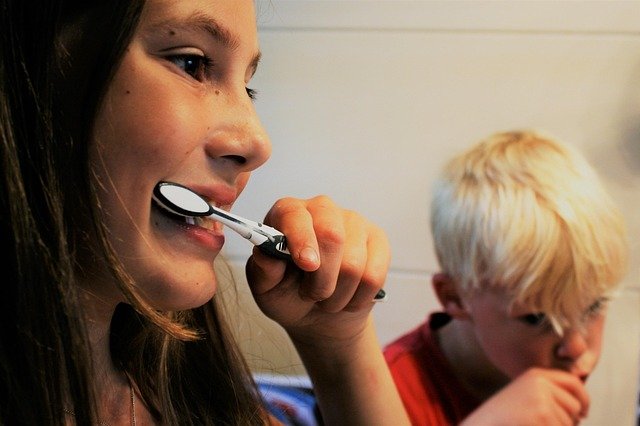Exploring the effectiveness of at-home gum treatment options
Maintaining healthy gums is crucial for overall oral health and a beautiful smile. While professional dental care is essential, many people are turning to at-home gum treatments to supplement their oral hygiene routine. This article explores the effectiveness of various at-home gum treatment options, providing you with valuable insights to improve your gum health and transform your smile.

What are the most common at-home gum treatment methods?
At-home gum treatments have gained popularity due to their convenience and affordability. Some of the most common methods include:
-
Oil pulling: This ancient Ayurvedic practice involves swishing oil (usually coconut or sesame) in your mouth for 15-20 minutes to remove bacteria and toxins.
-
Salt water rinses: A simple yet effective method to reduce inflammation and kill harmful bacteria in the mouth.
-
Herbal remedies: Natural ingredients like aloe vera, green tea, and turmeric have anti-inflammatory properties that can benefit gum health.
-
Specialized oral care products: Over-the-counter gels, mouthwashes, and toothpastes designed specifically for gum health.
-
Proper brushing and flossing techniques: While not a treatment per se, maintaining good oral hygiene is crucial for preventing and managing gum issues.
How effective is oil pulling for gum health?
Oil pulling has gained traction as a natural remedy for gum health. While scientific evidence is limited, some studies suggest that oil pulling may help reduce plaque and gingivitis. The practice is believed to work by “pulling” bacteria and toxins from the mouth, reducing inflammation and promoting overall oral health.
However, it’s important to note that oil pulling should not replace regular brushing, flossing, and professional dental care. Instead, it can be used as a complementary treatment to enhance your oral hygiene routine.
Can salt water rinses really improve gum health?
Salt water rinses are a simple yet effective at-home gum treatment option. The salt helps to create an alkaline environment in the mouth, which is inhospitable to many harmful bacteria. Additionally, salt water can help reduce inflammation and promote healing of minor gum irritations.
To create a salt water rinse, simply dissolve half a teaspoon of salt in a cup of warm water. Swish the solution in your mouth for about 30 seconds before spitting it out. This can be done 2-3 times a day for optimal results.
What role do herbal remedies play in at-home gum treatment?
Herbal remedies have been used for centuries to promote oral health, and many of these traditional treatments are gaining recognition in modern dentistry. Some effective herbal remedies for gum health include:
-
Aloe vera: Known for its anti-inflammatory and antibacterial properties, aloe vera gel can be applied directly to the gums to soothe irritation and promote healing.
-
Green tea: Rich in antioxidants, green tea can help reduce inflammation and fight bacteria that cause gum disease. Drinking green tea or using it as a mouth rinse may provide benefits.
-
Turmeric: This spice contains curcumin, a compound with powerful anti-inflammatory and antioxidant properties. Creating a paste with turmeric and water can be applied to the gums for potential benefits.
While these herbal remedies show promise, it’s essential to consult with a dentist before incorporating them into your oral care routine, especially if you have existing gum issues.
Are specialized oral care products effective for at-home gum treatment?
The market offers a wide range of specialized oral care products designed to target gum health. These products often contain active ingredients such as:
-
Chlorhexidine: An antiseptic that helps reduce plaque and gingivitis
-
Fluoride: Strengthens tooth enamel and helps prevent decay
-
Stannous fluoride: Provides antimicrobial benefits in addition to fluoride’s protective properties
-
Essential oils: Some mouthwashes contain natural oils like eucalyptol and thymol for their antibacterial properties
While these products can be effective when used as directed, it’s crucial to choose ones that are approved by dental associations and recommended by your dentist. Remember that these products should complement, not replace, regular brushing and flossing.
How can proper brushing and flossing techniques transform your smile?
Proper brushing and flossing techniques are the foundation of effective at-home gum treatment. To maximize the benefits:
-
Brush twice daily for at least two minutes using a soft-bristled toothbrush
-
Use fluoride toothpaste and consider an electric toothbrush for more thorough cleaning
-
Floss daily to remove plaque and food particles between teeth and along the gum line
-
Consider using interdental brushes or water flossers for hard-to-reach areas
-
Replace your toothbrush or electric toothbrush head every 3-4 months
Consistency in your oral hygiene routine is key to maintaining healthy gums and preventing issues like gingivitis and periodontitis.
| Product Type | Provider | Key Features | Cost Estimation |
|---|---|---|---|
| Electric Toothbrush | Oral-B | Pressure sensor, multiple cleaning modes | $50 - $200 |
| Water Flosser | Waterpik | Adjustable pressure settings, various tips | $40 - $100 |
| Gum Health Toothpaste | Parodontax | Stannous fluoride formula | $5 - $10 |
| Antimicrobial Mouthwash | Listerine | Essential oils blend | $5 - $8 |
| Interdental Brushes | TePe | Various sizes, reusable | $5 - $10 for a pack |
Prices, rates, or cost estimates mentioned in this article are based on the latest available information but may change over time. Independent research is advised before making financial decisions.
At-home gum treatments can be effective supplements to professional dental care when used correctly and consistently. By incorporating these methods into your daily oral hygiene routine, you can help maintain healthy gums and a beautiful smile. However, it’s crucial to remember that these treatments should not replace regular dental check-ups and professional cleanings. Always consult with your dentist before starting any new oral care regimen, especially if you have existing gum issues or other dental concerns.
This article is for informational purposes only and should not be considered medical advice. Please consult a qualified healthcare professional for personalized guidance and treatment.




